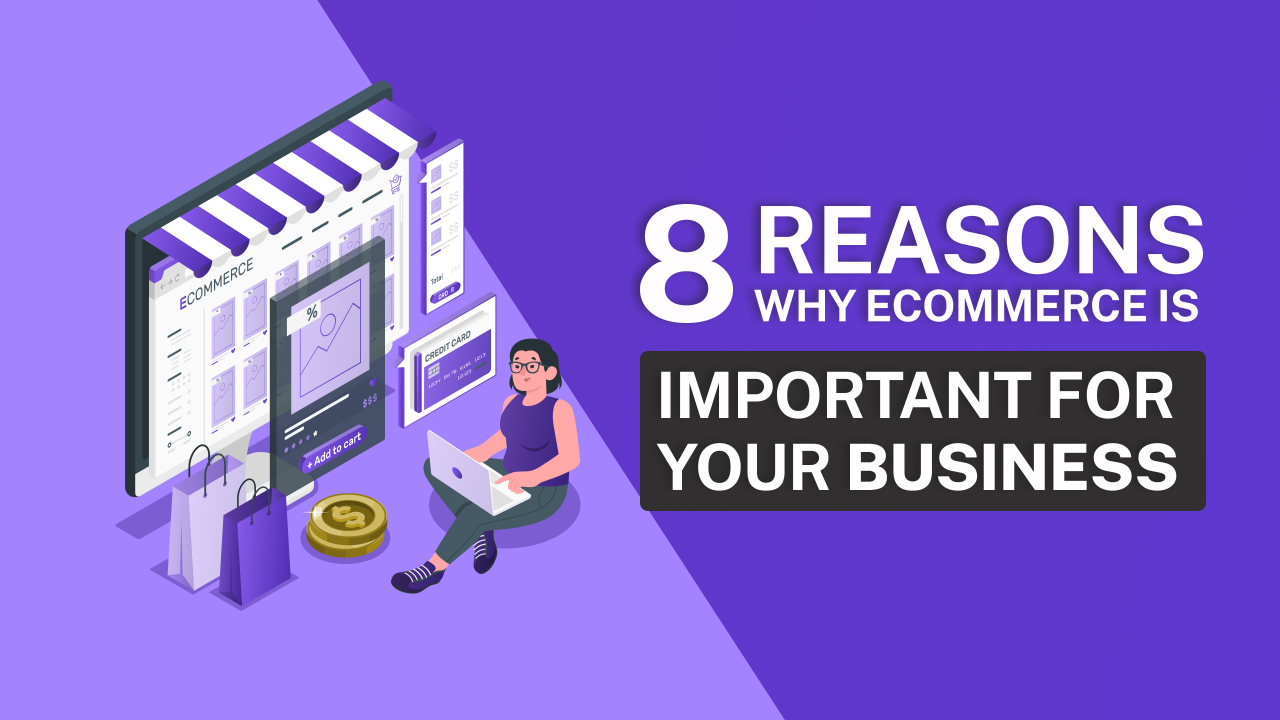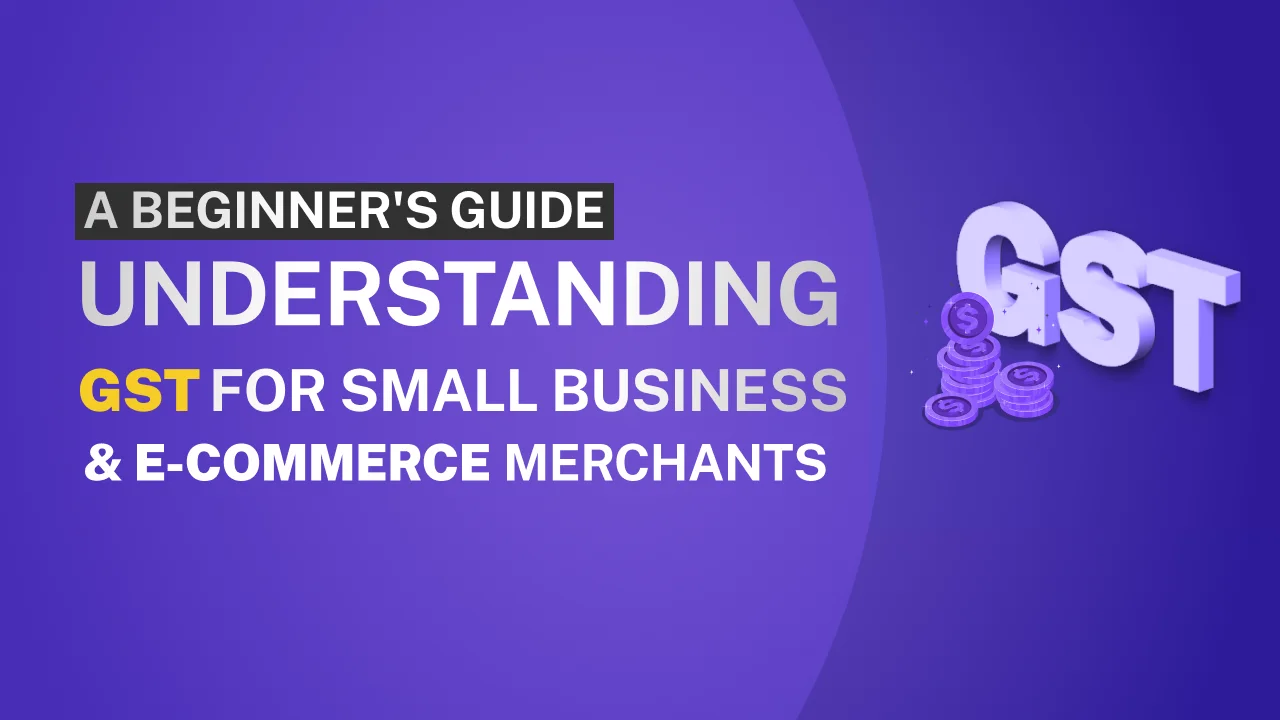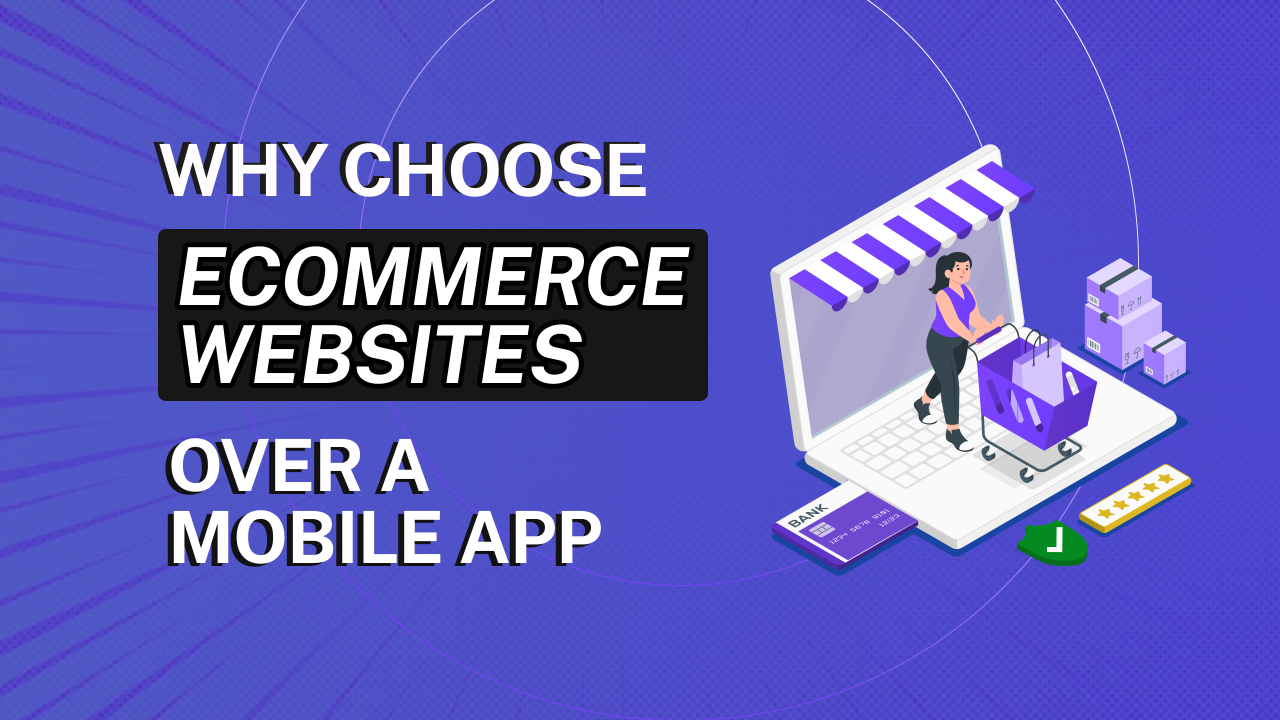
8 Reasons Why E-commerce is Important for Your Business
Learn how e-commerce can boost your sales, reach, and customer satisfaction by offering convenience, variety, and trust
If you’re here, it’s because you know the importance of Video marketing. Brands can no longer get maximum reach just by using written content or images alone. They need something dynamic, fast, and very easy to understand.
That's where video marketing comes into the picture.
Video marketing is a powerful strategy for educating, engaging, and converting your audience about your brand. It varies from brand to brand depending on the company's size, budget, industry, and target audience and products. However, most campaigns share some common steps, which you should take into account when approaching Video content marketing for your business.
In this blog, we will cover the fundamentals of what is a Video marketing strategy and how you can plan to create the right suitable content for your audience.
Video marketing leverages video content to promote a brand, product, or service. It can be educational (how-to or instructional videos), informative (product demos), or entertaining (think commercials). Videos are shared across social media, websites, and email campaigns to grab attention, clearly explain intricate topics, and increase engagement.
Planning the whole process of marketing videos and delivering the videos to your target audience in an effective way is called Video Marketing Strategy.
For planning an effective video marketing strategy, start by answering these questions
Even with a generous budget, failing to use the right strategy won't favor good conversion or results. So let’s explore the key components of an effective Video marketing strategy.
If you create a video without having an audience in mind, then it will most likely turn out to be less specific.
The key is developing your buyer’s persona. If you already have one — great! Creating a buyer’s persona will help you to understand who your audience is and what they are looking for. Once you learn about your audience, you will have a clear picture of what to deliver to the audience.
With your buyer’s persona mapped out, you’ll know exactly who your target audience is and you can proceed to tell your story through your Visuals.
Such as “You can make a story of your brand, like how you started your business. If you are a product company, showcase the need for your product, and write a story that will make your audience one step closer to your brand with a prime focus on your product.”
A good example is this brand video from Shopify. This video tells a story of how people all over the world try to build their lives and make them earn for themselves.
Although it barely mentions the brand's name, it shows how Shopify gives people the freedom to run their businesses. This video will bring their audience a step closer to them.
Video is a visual medium, think about how you can showcase your product visually to attract new customers. You cannot expect a product tour documentation video to get you new customers. You need to visually attract them with your product and what you provide for them. Keep your message short and sweet, then plan your idea of delivery.
Answering the questions given below will help you understand your objective
Although your message may be great, you still need to ensure that the audience is vested in it. You need to hook your audience's attention and keep the story interesting.
For example; If you are a motorbike product niche, your target audience will be predominantly motorbike enthusiasts. Hooking your audience with absolute banger visuals of motorbikes or the sound of motorbikes is a better way to start.
Check the Harley Davidson reels and note how they keep their audience entertained with their brand.
Research what solution you provide to your target audience. Be clear and simple in conveying your messages. If you are providing a website and related services, find the problems in that area and make sure you highlight them as well as the solutions you provide for that particular problem. This is simple and very effective.
If you want to attract a new set of customers to your brand, you’ll want to create an awareness stage video. If you want to engage your existing audience, you’ll want a consideration stage video. Keep this in mind while you're preparing your video content and plan your message accordingly. Always get into the shoes of the customer before you deliver your video content.
Once you finalize the context idea of the video, it is time to narrow your vision to find the right video types. Imagine you are going to purchase a mobile in your nearest mobile store and you are confused about certain features to use. Having a person explain “how it works” will help you understand the product better. Similarly, your customers need to know “What you provide”, “How your product works” etc.
Giving them an explanatory video on your website will be easy for them to understand and easy for you to explain, creating better brand awareness.
There are different types of videos used for marketing across the internet.
Here are the five most common video types to choose
We have dozens of Video types that are used in different combinations to deliver their product effectively on social media.
Check out more on Types of Video used in Marketing to better understand what types of videos your business can use effectively.
Once you have the right content and types of video to create your video, it is time to work on your video creation process and make the most out of it.
I will easily break down the important steps to follow for your content creation process.
After finding suitable content, write it in your way and prepare the script according to your needs. Be clear and relaxed. Hook your audience at the beginning as there is a high chance of the audience neglecting your video if you bore them in the first 10 seconds. Keep in mind what you are delivering and who your audience is while writing your video.
Find a special spot for your video-making! You can always shoot videos at any place, just remember to keep your video clean in the same way you will keep yourself presentable in an interview. If you are just making an explanatory video, it will always require only one person or two people. But making story videos, Ad videos or even demos requires a team effort to accomplish the work faster. Keep everyone informed and ready so that you save time.
Make a list of the scenes you want in your video and practice.
The more you practice the easier the shooting process will go.
Always find time to explore trending edits and tutorials of such editing to keep yourself updated with video editing. Edit and cut videos keeping the audience in mind. Show your rough cut to others for feedback, and make edits based on what they say. You can use free video editing tools like Capcut and Davinci to kickstart your video editing works.
As much as Visual elements play important roles, the right sound is also very crucial for your videos.
Check out this Infobells channel - Pleasant childish happy tunes from Infobells videos are very attractive to infants and help them reach a large number of subscribers and watch Hours. Apart from music, the voice-over is like a secret key for storytelling. Use relatable voices to fill in gaps in your video to make it more cinematic for the audience.
Eg. Blue learn created a storytelling video that best explains what their company does and why they do it.
Pick your favorite platform (YouTube, Instagram, etc.).
Make sure your video format works (MP4, MOV, etc.).
These are not all. For a more detailed step-by-step guide on crafting your video.
Go through How to Create a Video for Your Business
Let's just keep it simple, as a beginner–here are the three metrics that you should care about
Always make sure you constantly engage with your audience through comments, As you engage with your audience through comments, pay attention to the content that receives higher shares. Increased shares indicate relatability, attracting more audience.
These metrics will keep you ahead of the curve and will help you shape your content accordingly for the future. The more you experiment, the more feedback you can have and analyze for the upcoming marketing campaigns.
Check out 14 Video Metrics To Track Content Success
Always find time to write out things while planning your goals and vision. This era is a perfect time to use Dynamic video content to push your brand above everything else. Also, remember that Video marketing strategy differs from brand to brand and you can always experiment!
So keep learning about your brand, and work with what suits you the best!

Learn how e-commerce can boost your sales, reach, and customer satisfaction by offering convenience, variety, and trust

Understanding GST - Basics of GST, returns, TCS, TDS for small businesses & e-commerce merchants selling online in India. Simplified

Why choose websites over apps for online business? Learn how websites excel in accessibility, user experience, and cost-effectiveness